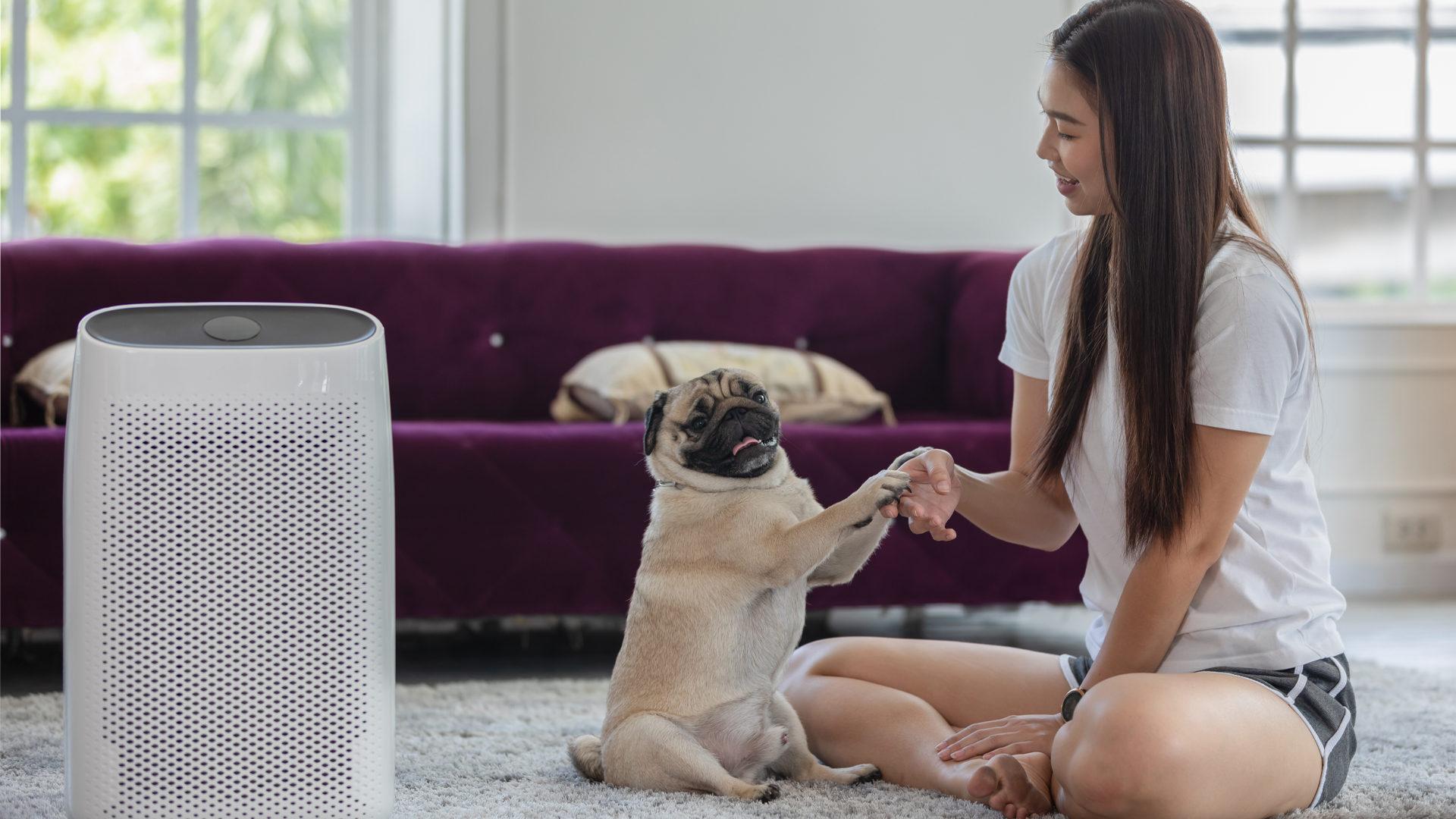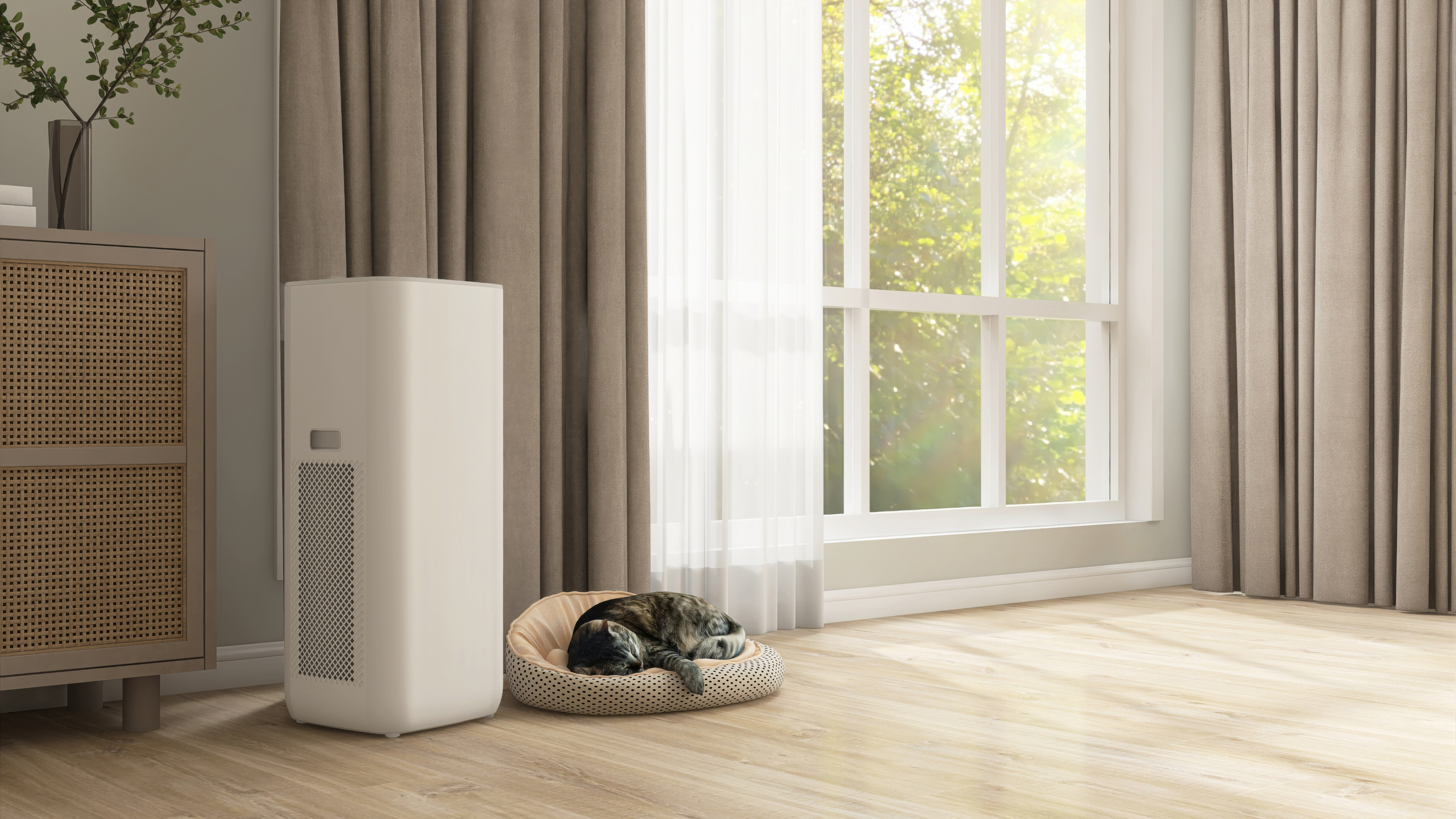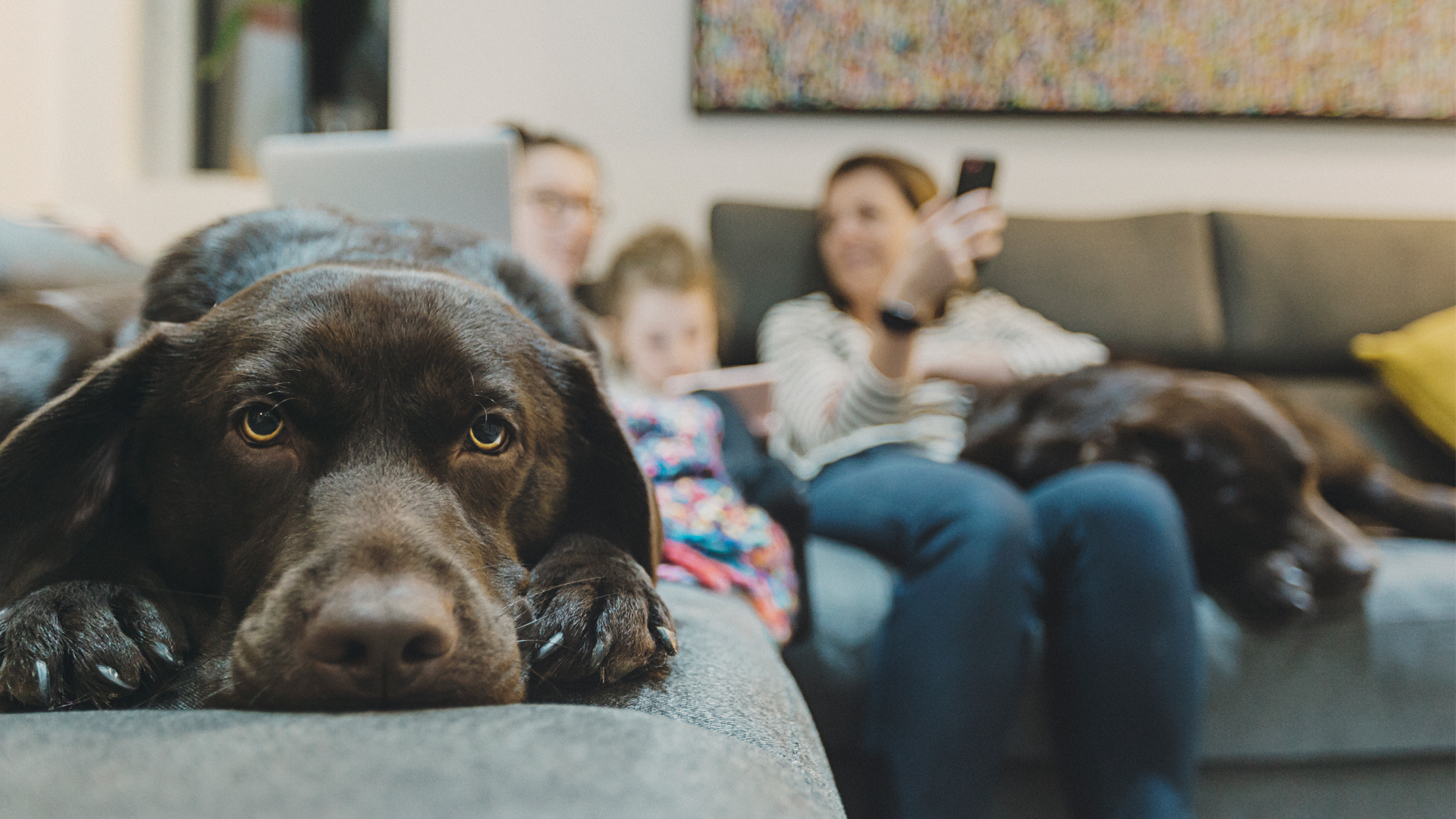Are air purifiers safe for pets?
Air purifiers can help pet owners rid their homes of bad odors and pet dander, but are they safe to use around our furry friends?

Air purifiers are becoming increasingly popular among pet owners, and understandably so. These appliances can trap pet dander, hair and many other airborne particles, keeping the air indoors free of unwanted pollutants. Some of the best air purifiers on the market even feature an activated charcoal filter capable of absorbing bad odors — something our furry friends are often the cause of. But are air purifiers safe for pets?
In most cases, there is nothing to worry about. "I would like to reassure pet owners that most air purifiers are safe for pets," Dr. Nick Horniman, a British veterinary surgeon and founder of online pet pharmacy MyPetsVet, told Live Science by email. "However, there are a few important considerations [when choosing an air purifier]," he said.
Air purifiers come in various shapes and sizes, from small desktop units to large, free-standing models. When assessing whether an air purifier is safe for your furry friends, there are two aspects to keep in mind. The first is the physical safety of using a mechanical device around animals; the second is whether the purifier improves or damages the health of your pet.
In terms of physical hazards, there is a risk of your pet becoming trapped in the electrical cord of your air purifier. This is a risk shared with any other electrical devices within your home. "It is essential to place the purifier in a stable location where pets can't easily knock it over," Horniman said. "Also, ensure that all materials used are non-toxic," Horniman said.
The good news is that most air purifiers are designed with the safety of small children in mind, which is why their internal mechanisms should also be relatively safe from prying paws and wagging tails.
Do, however, be mindful of the noise level and airflow generated by your device. "Some pets may be sensitive to loud sounds or strong air currents, which can cause stress," Horniman said.
Most air purifiers use fans to draw air in from the outside and pass it through one or more filters. Once the air is purified, it gets forcefully expelled back into the atmosphere, emitting noise that can range from a low-level 40dB (comparable to a home computer) to a loud and uncomfortable 70dB (the sound of a vacuum cleaner operating at full strength). Loud sounds that are also high-pitched and intermittent can be particularly distressing for dogs, and many pet owners underestimate the effects of noise on the well-being of their furry friends, according to a 2021 study published in the journal Frontiers in Veterinary Science.
Get the world’s most fascinating discoveries delivered straight to your inbox.
- Related: How do air purifiers work?

Noise issues aside, though, air purifiers are unlikely to cause physical harm to our pets when used properly. But how do they impact their respiratory health? Unfortunately, there are no studies that could answer this question. What we do know, however, is that the air quality issues that affect people can affect pets too, and many harmful airborne particles have been linked to poor health outcomes in animals.
For example, a 2008 study published in the journal Brain and Cognition showed that dogs' brains were adversely affected by the heavy pollution levels in Mexico City. In the study, 57% of dogs exposed to higher pollution levels developed frontal brain lesions and showed signs of neuroinflammation. Another study published in the journal Toxicologic Pathology found DNA damage in the nasal and brain tissues of dogs exposed to air pollutants, in addition to respiratory tract inflammation and neurodegenerative damage.
In a more recent study published in the journal of Veterinary Internal Medicine involving canines and felines, researchers found that cats with respiratory diseases were more likely to live in households with higher indoor air pollution, meaning levels of particles of 2.5 microns or less. They also found that dogs with respiratory diseases were more commonly exposed to incense-burning than the control group of dogs in the study.

Given that air purifiers can rid your home of these airborne pollutants, it is likely that they can help make the air safer to breathe for your pet. However, there is one major exception. "Make sure to avoid air purifiers that generate ozone, as this can be harmful to both pets and humans, potentially leading to respiratory issues," Horniman said.
Ozone, a gas molecule comprising three oxygen atoms, is a common by-product of ionizers. These devices are often built into air purifiers to magnify their purifying power. Ionizers release negative ions, which are electrically charged particles, that attach to airborne pollutants, causing them to clump together and fall out of the air.
The takeaway? "When chosen and used properly, a high-quality air purifier can significantly enhance the air quality in your home without posing a danger to your furry friends," Horniman said.
This article is for informational purposes only and is not meant to offer medical advice.
Lawrie is a journalist and editor who writes about healthcare, science, technology, engineering and design. He's worked for some of the UK and Europe's leading titles, making complex science as simple as possible. He also owns content agency 42group where he helps household brands, academic institutions and charities to grow through engaging, informative and inspirational words.
- Anna GoraHealth Writer
 Live Science Plus
Live Science Plus






